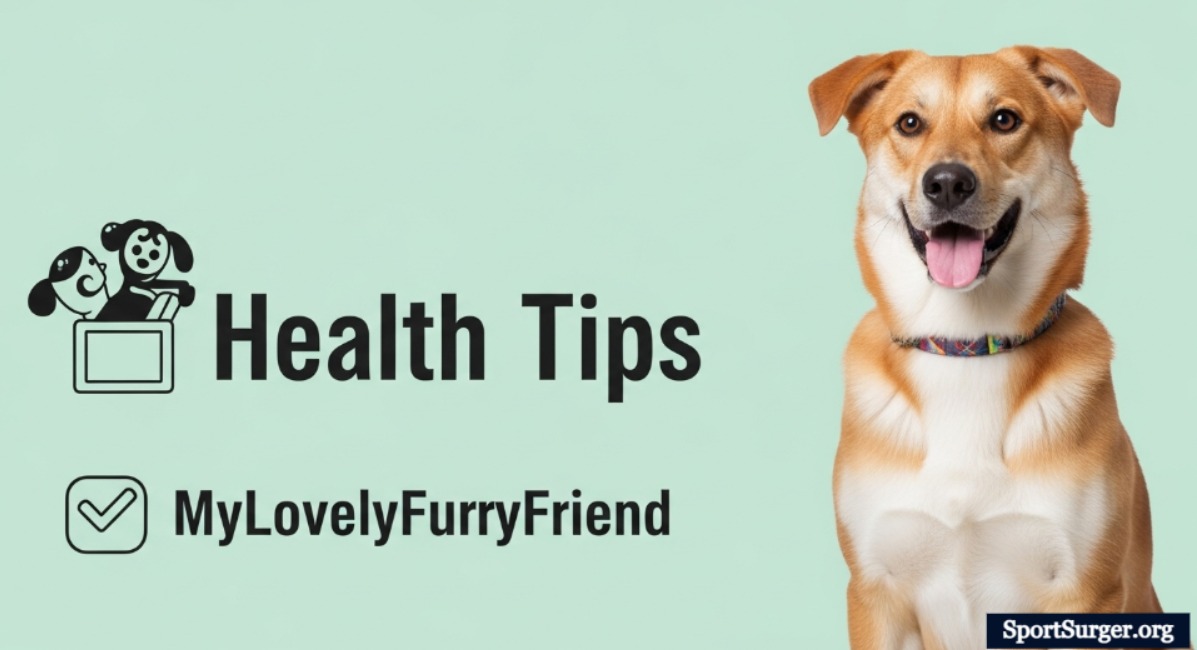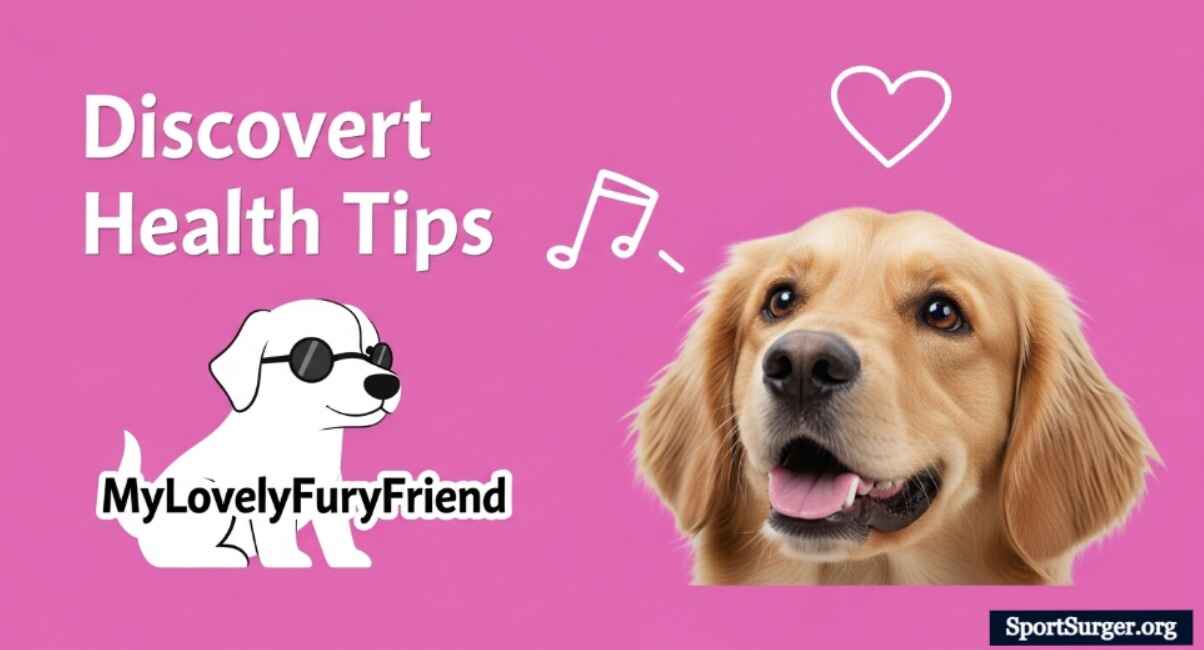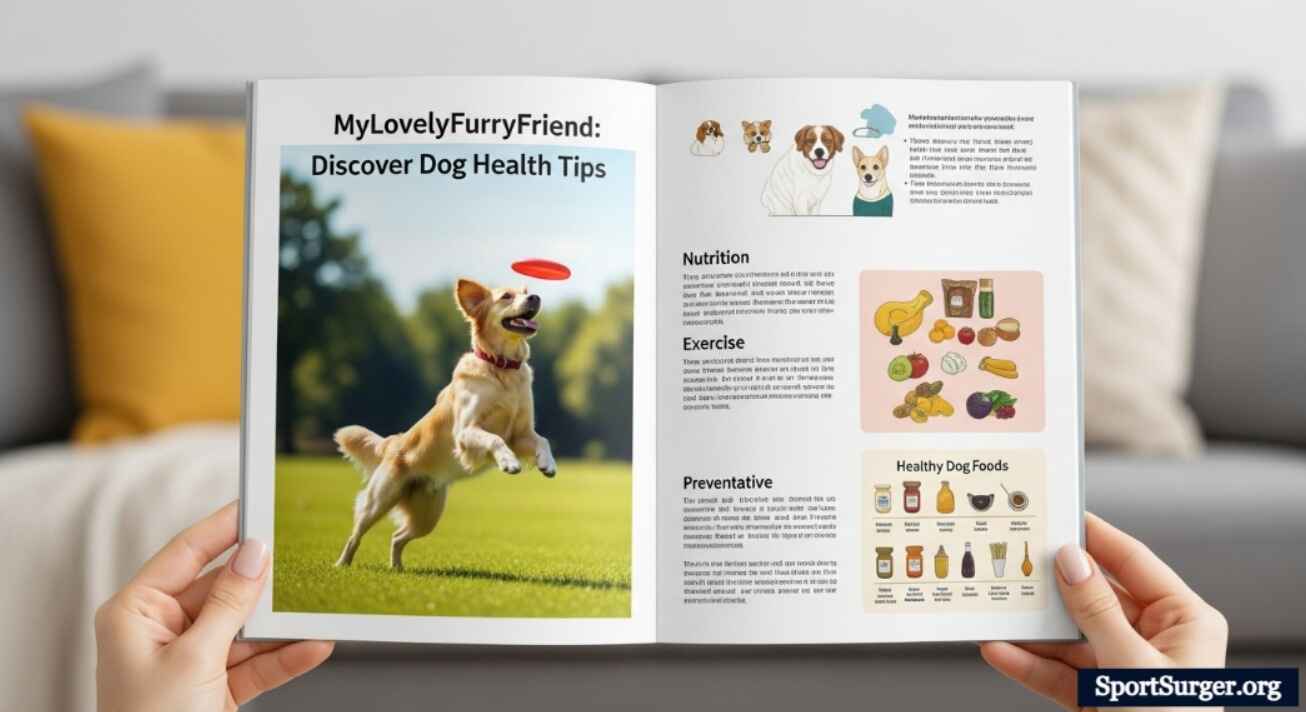Introduction
Keeping your dog healthy isn’t just about avoiding vet visits—it’s about ensuring they live a long, happy, and energetic life. At MyLovelyFurryFriend, we believe that a healthy dog equals a happy heart for both you and your furry companion. This guide covers everything from nutrition and exercise to mental wellness and preventive care, giving you expert-backed tips to keep those tails wagging.
Why Dog Health Matters More Than Ever

Your dog depends on you for everything—from the food they eat to the walks they take. Just like humans, dogs need balanced nutrition, regular activity, and emotional support to thrive. Poor health can lead to serious issues like obesity, joint pain, dental disease, and even shortened lifespans.
A healthy pup isn’t just physically fit—they’re also mentally sharp and emotionally balanced. And that’s where “MyLovelyFurryFriend Discover expert tips on dog health“ comes in, helping pet owners stay informed and proactive.
Understanding Your Dog’s Health Needs
Every dog is different. Factors like breed, age, and lifestyle play a huge role in determining their needs.
Breed-Specific Health Concerns
- Large breeds like German Shepherds may face hip dysplasia.
- Small breeds like Chihuahuas often deal with dental problems.
- Flat-faced breeds like Pugs are prone to breathing issues.
Life Stage Requirements
- Puppies need nutrient-dense food for growth.
- Adult dogs benefit from balanced maintenance diets.
- Seniors may require joint supplements and softer foods.
Nutrition – The Foundation of Canine Health
Food is the building block of health. Without proper nutrition, all other efforts will fall short.
Choosing the Right Dog Food
Look for foods with:
- Real meat is the first ingredient.
- No artificial preservatives or colors.
- Balanced vitamins and minerals.
Portion Control
Overfeeding is one of the leading causes of obesity in dogs. Always follow the feeding guidelines provided by your vet or on the food label.
Fresh Water Access
Just like us, dogs need constant hydration. Change water at least twice daily.
Exercise – Keeping Your Dog Active and Agile
A healthy dog is an active dog. Exercise strengthens muscles, supports mental health, and prevents obesity.
Daily Walks
- Small breeds: 20–30 minutes twice a day.
- Large breeds: 45–60 minutes daily.
Playtime Ideas
- Fetch games for energy bursts.
- Tug-of-war for muscle engagement.
- Puzzle toys for mental stimulation.
Preventive Veterinary Care
An ounce of prevention is worth a pound of cure—especially when it comes to dogs.
Regular Check-Ups
Your vet can detect early signs of illness before they become serious.
Vaccinations
Essential vaccines protect against rabies, distemper, parvovirus, and more.
Parasite Control
Year-round protection against fleas, ticks, and worms is a must.
Dental Health – The Overlooked Essential
Dental disease can cause more than bad breath—it can damage organs.
Brushing Your Dog’s Teeth
Use a dog-friendly toothbrush and toothpaste.
Dental Treats and Chews
These can reduce tartar buildup while keeping your dog entertained.
Mental Wellness for Dogs
A bored dog is often a destructive dog. Mental health is as important as physical health.
Socialization
Introduce your dog to different people, places, and other pets to prevent anxiety.
Training Sessions
Short, positive reinforcement sessions build confidence and obedience.
Grooming and Skin Care
A shiny coat and healthy skin are signs of overall well-being.
Bathing
Most dogs only need a bath every 4–6 weeks unless they get particularly dirty.
Brushing
Removes dead hair, prevents matting, and stimulates skin oils.
Weight Management
Obesity is one of the most common health issues in dogs today.
Signs Your Dog is Overweight
- You can’t feel their ribs easily.
- They have no waist definition.
Solutions
- Adjust food portions.
- Increase daily exercise.
Special Considerations for Senior Dogs
Older dogs have unique needs.
Joint Support
Glucosamine and chondroitin supplements can improve mobility.
Regular Health Screenings
Senior dogs should have check-ups at least twice a year.
Common Dog Health Problems & How to Handle Them
Allergies
Symptoms: Itching, red skin, and ear infections.
Solution: Hypoallergenic diet and vet-prescribed medication.
Arthritis
Symptoms: Limping, stiffness.
Solution: Weight management, joint supplements, and pain relief.
Digestive Issues
Symptoms: Vomiting, diarrhea.
Solution: Bland diet and vet consultation.
Emergency Preparedness for Pet Owners
Knowing what to do in an emergency can save your dog’s life.
Basic First Aid Kit for Dogs
- Bandages
- Antiseptic wipes
- Digital thermometer
- Emergency vet contact info
Holistic and Alternative Care Options
Some pet owners explore holistic approaches alongside conventional care.
Massage Therapy
Helps relieve stress and muscle tension.
Acupuncture
May aid in pain management and mobility.
How MyLovelyFurryFriend Helps You Stay Informed

At MyLovelyFurryFriend, we provide updated, evidence-based tips to help you make informed choices about your pet’s well-being. Our expert guidance ensures you can tackle health challenges with confidence.
Conclusion – Healthy Paws, Happy Hearts
Dog health isn’t just about treating problems—it’s about preventing them. From choosing the right food to keeping their mind active, every small step you take adds up to a healthier, happier dog. Following the “MyLovelyFurryFriend discover expert tips on dog health” approach means your furry friend can enjoy more tail wags, more adventures, and more love-filled years by your side.
FAQs
Q1: How often should I take my dog to the vet?
At least once a year for adults, twice a year for seniors or dogs with health conditions.
Q2: What’s the most important part of dog health?
Balanced nutrition and preventive care form the foundation of long-term wellness.
Q3: Can I brush my dog’s teeth every day?
Yes, daily brushing is ideal, but even 2–3 times a week can help.
Q4: How much exercise does my dog need?
It depends on breed and age, but most need 30–60 minutes daily.
Q5: Are natural remedies safe for dogs?
Some are, but always consult your vet before trying alternative treatments.

